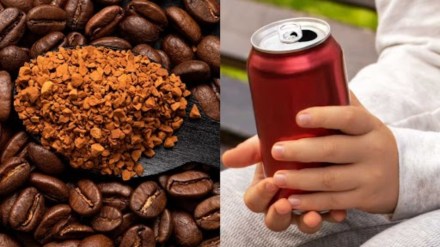GST New Rates: Consumers of Coca-Cola, Pepsi and other carbonated soft drinks will have to brace for higher prices, as the Goods and Services Tax (GST) Council has decided to raise the tax rate on carbonated beverages from 28 per cent to 40 per cent.
The hike, effective from 22 September 2025, applies to all sweetened and flavoured carbonated drinks, including energy and caffeinated beverages.
Why carbonated beverages are put on higher GST slab?
Finance Minister Nirmala Sitharaman explained that these products were earlier subject to 28 per cent GST plus a compensation cess. With the cess now withdrawn, the Council opted for a 40 per cent flat rate to maintain the earlier effective tax burden.
Relief for coffee beverages
In contrast, plant-based milk drinks, including soya milk and other non-carbonated alternatives, will become more affordable. Their GST rate has been slashed to 5 per cent from the earlier 12–18 per cent bracket. This reform also covers certain coffee-based drinks categorised under non-carbonated, plant-based beverages, making them cheaper for consumers.
Separately, the GST on regular coffee has been reduced from 18 per cent to 5 per cent, a move welcomed by both consumers and industry players.
Abhinav Mathur, managing director, Kaapi Machines & Something’s Brewing, said the 5% GST will encourage coffee consumption among people.
“Coffee remains under the 5% GST slab, which is encouraging for both consumers and the industry. For households, it ensures that brewing coffee at home remains affordable, supporting the growing shift towards higher-quality coffee consumption. For cafes, hotels, and hospitality partners, it helps sustain demand and keeps margins more stable at a time when input costs are rising.”
“By contrast, the sharp increase to 40% GST on carbonated and caffeinated packaged drinks signals the government’s intent to discourage less healthy choices, though it may add cost pressures for cafés and restaurants that serve these beverages. Overall, the differential treatment reinforces coffee’s position as an everyday, essential beverage. It would be helpful if the government could delink brewed coffee, a natural drink, from other artificial caffeinated beverages, so that the common consumer is not faced with a 40% GST on their everyday filter kaapi,” he added.
Rationale behind the reforms
According to the government, the changes aim to strike a balance between public health priorities and tax rationalisation. Sugary carbonated beverages, often criticised for their health impact, will be taxed more heavily, while healthier alternatives such as plant-based drinks will see a reduction.
The Council also emphasised that placing all non-alcoholic carbonated and caffeinated drinks in the same slab avoids misclassification and reduces disputes. Other non-alcoholic beverages have also been brought under the 40 per cent rate to ensure uniformity.
These adjustments form part of the wider “NextGen GST” reforms unveiled at the 56th Council meeting on 3 September. The reforms collapsed the earlier four-tier structure into just two primary slabs of 5 per cent and 18 per cent, while retaining a 40 per cent rate for sin and luxury goods.
